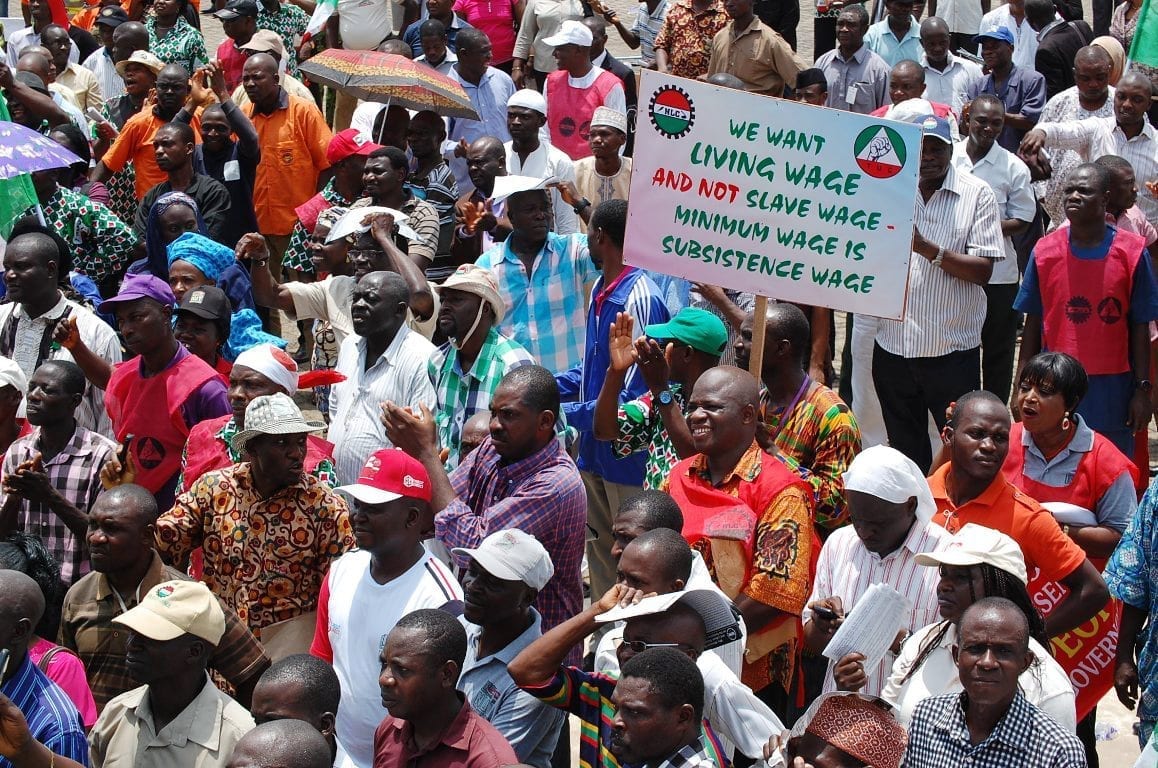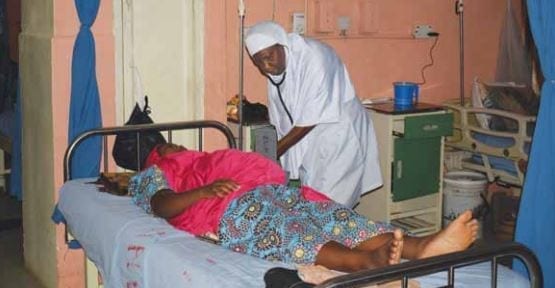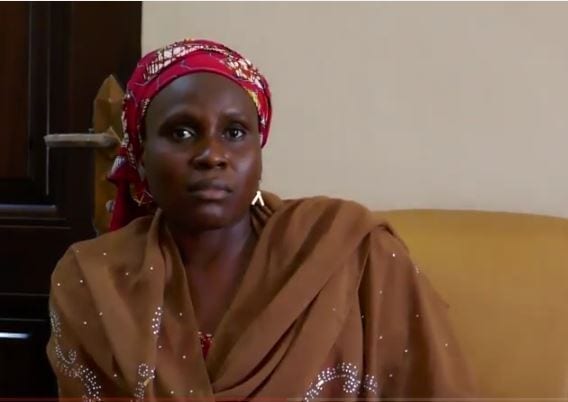
Sep 23, 2018
Nigeria’s labor federations—the Nigeria Labor Congress (NLC), the Trade Union Congress (TUC) and the United Labor Congress of Nigeria (ULC)—called for a national strike starting at midnight last night to protest stalled negotiations with the government for an increased minimum wage for all workers in the country.
Should the strike continue, all public-sector institutions, including schools and hospitals, could be affected. The strike might involve as many as 4 million workers, including Nigeria’s two oil unions, said Peter Ozo Eson, an NLC spokesperson.
“[W]orkers across the country are angry,” said Iboro Ibara, NLC vice chairman in Akwa Ibom state.
The country’s current minimum wage—$49.60 per month—is not a living wage, say workers, and must be raised to compensate for increased commodity, gasoline and other cost of living increases due to hyperinflation.
The NLC called for a strike starting at midnight last night by “workers from all sectors of the economy and our civil society allies” to pressure the federal government to reconvene the country’s tripartite minimum wage committee. The committee meets so that workers, government and employers can consult on Nigeria’s national minimum wage. The strike was triggered when the government allowed labor’s 14-day ultimatum to reconvene the committee to elapse today.
“This strike is a direct result of the failure of the minimum wage committee to find a way forward,” said Craig Phelan, director of Solidarity Center programs in Nigeria.
UPDATE: The NLC suspended the nationwide strike yesterday in response to news that the federal government will reconvene the tripartite minimum wage committee this week, on October 4 and 5. The NLC credited workers’ “substantial compliance” with the strike for government agreeing to meet.

Sep 6, 2018
A new Solidarity Center report, “Working for Peace in North-East Nigeria: A Challenge for Nigerian Trade Unions,” outlines the devastating toll of Boko Haram violence on people living in northeast Nigeria, in particular on civil servants and their families, and how the labor movement will be essential to responding to the aftermath of the crisis and rebuilding for sustainable development and peace.
The report, with accompanying worker testimonials, was launched Tuesday at a 50-person event in Abuja, Nigeria’s capital. featuring three workers victimized by Boko Haram; Solidarity Center, Borno-based trade union partners; representatives of Nigeria’s National Labor Congress (NLC)—including President Ayuba Wabba; Public Services International (PSI); the Trade Union Congress (TUC); the Organization of Trade Unions of West Africa (OTUWA), as well as the press.
“We have lost more than two thousand workers—teachers, local government workers, health workers,” said Wabba, who pointed to lack of good governance as the root cause of conflict.
“We must work assiduously to try to address issues of human and trade union rights,” he continued.
Three years of sustained work by NLC-affiliated public-sector unions in the region preceded the report’s publication. The unions that represent teachers and hospital workers, among groups specifically targeted by Boko Haram militants, were able to document and begin to address the economic and psycho-social impacts of violence on their members and the community at large. “As integral members of their communities,” the report states, “union members are well-positioned to assess the local situation, understand the needs of community members and communicate this essential information to better facilitate the post-conflict rebuilding process.”
Report recommendations include that the government of Nigeria follow principles established by ILO Recommendation 205 to work in coalition with trade unions and employers in creating long-term solutions for a sustainable and inclusive economy, including bringing back family-sustaining jobs and helping institutions such as schools and hospitals recover and rebuild.

Jun 30, 2017
This week the Nigeria Labor Congress (NLC) and the Trade Union Congress of Nigeria (TUC)—which together represent millions of workers—along with civil-society organizations, presented a joint statement rejecting the “hate campaigns” that calling for secession in the northern part of the country. “We Are One for Nigeria,” they said.
Describing themselves as a pan-Nigeria force rejecting the drumbeats of war, the unions and civil society groups issuing the statement said that a physical conflict would, “hurt us all, most particularly workers” and that a divided Nigeria does not serve workers. The statement went on to call on all Nigerians of any faith, political bent, gender and ethnicity to, “stand up with one voice and fight those promoting division.”
The workers’ statement came in response to rising political tensions in the country, after a coalition of activist groups in northern Nigeria, known as the Northern Youth Groups, demanded that all members of the one of Nigeria’s main ethnic groups, the Igbo, leave northern Nigeria within three months or face forced expulsion. For some Nigerians, calls for secession are reminiscent of the bloody Nigerian civil war a half century ago, during which at least 1 million people died.

Mar 28, 2017
Even as an uneasy but relative peace takes hold in northeastern Nigeria, the death toll and violence of the past several years is having long-term effects on returning teachers, healthcare workers and civil servants in Borno state, according to a joint survey completed by public-sector unions last month.
The unions, with Solidarity Center support, documented hundreds of deaths by violent attacks—attacks in which many public-sector workers were specifically targeted.
The Nigeria Union of Teachers (NUT), Borno State Wing, estimates that it has lost more than 500 members, some to homemade bombs hurled at concrete classrooms. The Medical and Health Workers Union of Nigeria (MHWUN), Borno state, counted losses in the hundreds. The Borno state branch of the Nigeria Civil Service Union (NCSU) estimates more than 70 members were killed by gunshot or bomb blast.
Although many public-sector workers are now returning to their jobs, Mamman Bukar, Borno state NCSU Chairman, said almost 75 percent of civil servants represented by the union who are back on the job are struggling.
“People have started moving around, doing their normal jobs” he said, but, “some lost their senses because of the trauma of the situation.”
A male healthcare worker, for example, described a bloody armed assault on the hospital in which he was working on February, 11, 2014, when insurgents raided the pharmacy and murdered his supervising physician. Although the worker spoke on camera to record the eyewitness account, he asked for safety reasons that his interview and name not be publicly released.
Others described similar violent scenes at their workplace: “Then I saw half of a body on the ground,” said a civil servant with the Ministry of Agriculture, describing the aftermath of a bomb attack in May last year on the State Secretariat in the Borno state capital, Maiduguri. He also asked to remain anonymous.
Nurse-midwife Liyatu Haruma, who surveyed members of the National Association of Nigerian Nurses and Midwives, said she learned that the long-term impact on her colleagues is, “deep and close.” Many of them were injured, had their houses burned or witnessed people being killed, she said.
Borno state teacher Muhammad Kirala, who collected eyewitness accounts from his colleagues, said teachers he interviewed described watching colleagues “slaughtered like animals,“ with knives, run down by vehicles, or killed in bomb blasts as they attempted to escape gunmen.
Workers also reported serious economic consequences of the violence on them and their families, including the loss of income during long periods when their workplaces were too dangerous or damaged to access. Many who were injured said they did not receive compensation for medical expenses. Some said they could not pay for the health care they need to return to work successfully, and that the state is not providing support.
“[They] don’t have money to remove bullets from them,” said Yusuf Inuwa, head of the Borno state Medical and Health Workers Union of Nigeria (MHWUN).
Several workers showed interviewers remaining physical damage, including shrapnel still embedded under their skin.
A civil servant who spent almost four months in the hospital recovering from severe bomb-blast injuries to his leg and foot—and reporting anonymously for safety reasons—said he had received emergency funds from his union, but no salary for the time he was in the hospital nor government compensation for his injuries.
“Presently, I want my salary,” he said.
Missing workers were not counted in the unions’ surveys. An estimated 1.8 million people have been displaced in Borno State, including more than 19,000 teachers.
According to the International Labor Organization (ILO), the proper response of ILO member states in post-conflict situations within their borders is promotion of full employment and special action to assist all persons whose usual employment has been interrupted, per Recommendation No. 71– Employment (Transition from War to Peace), 1944. A revision of the Recommendation, which began last year, will include new post-conflict state responsibilities, including promoting employment, reinforcing state institutions, and fostering social protection, social dialogue and respect for fundamental rights.



